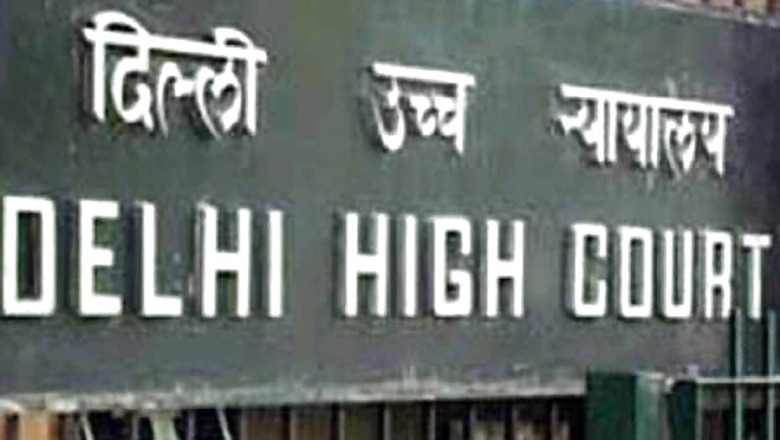
views
The Centre on Friday told the Delhi High Court that it does not discriminate between those public servants having their own accommodation at place of duty and those who do not while allotting government residences or while permitting them to retain the same for a period of time after retirement.
The Ministry of Housing and Urban Affairs told a bench of Chief Justice D N Patel and Justice Prateek Jalan that under the Central Government General Pool Residential Accommodation (CGGPRA) Rules 2017 every public servant seeking government housing needs to disclose whether they or any of their family members own a home at the place of duty.
"..if an allottee owns a house at the place of duty and he is getting a rental income upto Rs 12,000 per month, he is liable to pay normal licence fee in respect of the allotted accommodation. If the rental income is between Rs 12,001 to Rs 20,000 per month, he is liable to pay twice of the licence fee and for the rental income of Rs,20,001 and above the allottee is required to pay thrice the licence fee," the ministry said in its affidavit filed through central government standing counsel Ajay Digpaul.
The affidavit was filed in response to a PIL which seeks that government accommodation be not allotted to public servants who have their own personal residence at place of duty.
The plea by a society -- Chennai Financial Markets and Accountability -- has also sought that post retirement, public servants having their own accommodation ought not to be allowed to retain their government housing for more than the stipulated period of six months.
It had also cited the example of the former chairman of the Forward Market Commission who continued to retain the government bungalow allotted to him for months after his retirement.
Responding to the claims of the society, the ministry has said that the official in question had retired in July 2019 and was allowed to retain the government bungalow allotted to him in 2015 for another six months in accordance with the CGGPRA Rules.
When he failed to vacate the premises after the retention period got over, eviction proceedings were initiated against him and a show cause notice was issued to him in February this year, it said.
The retired official had deposited Rs 4.25 lakh towards "telescopic damages" as he intended to retain the house for three months after expiry of retention period, the affidavit said.
However, in view of COVID-19 outbreak the Directorate of Estates gave an extension of 75 days, from March 17 to May 31, to retain accommodation to those who were to vacate or shift residence during the said period and even to those who were unauthorised occupants, it said. It also said that the directorate decided to charge normal license fee from all of them for this period.
The permission to retain accommodation was later further extended upto June 30 and then to July 15 in view of the prevailing pandemic, the ministry said and added that the retired official in question vacated the premises on July 30 and also paid all the damages accrued till that date.
Taking note of the averments in the affidavit, the bench listed the matter for further hearing on September 2 along with another PIL by a trust which has raised the issue of illegal occupation of government accommodation by public servants and ministers even after they are no longer in power or office.














Comments
0 comment